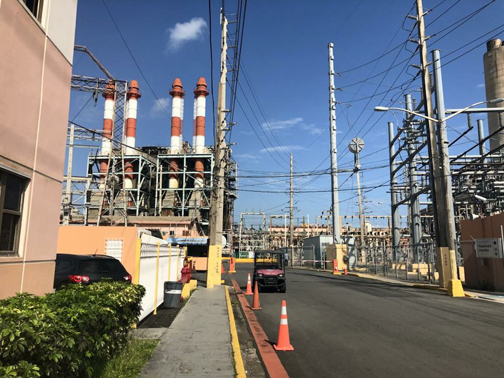CAMBIO, IEEFA sue to get PREPA to release public documents and data

The Institute for Energy Economics and Financial Analysis and CAMBIO, a Puerto Rico-based environmental nonprofit organization, filed a mandamus action in San Juan Superior Court to obtain information about the Puerto Rico Electric Power Authority’s system and ongoing privatization process.
“Very little information has been provided about the underlying studies or plans related to the government’s decision to privatize PREPA. We are determined to get answers to some of the pressing questions about PREPA’s structure to better inform the people of Puerto Rico about their future,” said Ingrid M. Vila-Biaggi, a civil engineer and founder of CAMBIO, part of the Queremos Sol coalition.
“It is imperative that Puerto Rico move toward, not away from the transition to renewable energy,” she said.
In April, Puerto Rico’s government signed into law targets for reaching 100 percent renewable energy by 2050.
The IEEFA and CAMBIO legal action is aimed at filling in missing gaps in information related to the privatization of PREPA, including any cost-benefit studies that have been conducted to justify the proposed transmission and distribution concession, as well as various new power plant proposals.
“Much of the privatization process is taking place behind closed doors,” said IEEFA Energy Analyst Cathy Kunkel. “There are justified concerns that, under the privatization proposals being discussed, Puerto Rico will not be moving toward solar and other renewable options anytime soon.”
The action comes after numerous letters to PREPA’s management requesting information went unanswered, the groups said
“The people of Puerto Rico deserve to know about these fundamental questions that will have enormous impact on their economic and energy future. PREPA cannot have a monopoly on information that is vital to the future of the island,” said Vila-Biaggi.
Both IEEFA and CAMBIO are part of the coalition of organizations that developed the Queremos Sol proposal, an alternative vision for the Commonwealth’s electric system that would radically decentralize Puerto Rico’s current grid, with a focus on rooftop solar.
To develop further modeling and actionable analysis, the coalition requires additional details about the utility’s transmission and distribution systems, information that PREPA is withholding.
In addition, a recent deal to pay off PREPA’s $8 billion legacy debt from 2020 onward, will cost island consumers more than $200 annually per household, even costing residents who introduce rooftop solar with eventual obligations to pay legacy fees, according to a recent IEEFA analysis.
According to Vila-Biaggi, in this case the debt agreement is reached without an audit, without a study that supports its economic viability, and placing the entire burden on consumers, while granting preferential treatment to the bondholders.
PREPA’s refusal to supply critical information is part of a long pattern of missing transparency from the utility, according to Kunkel.
“This is yet another example of PREPA’s opaqueness, such as the failure to publish its most recent fiscal plan, which was supposed to be released last month,” she said.













